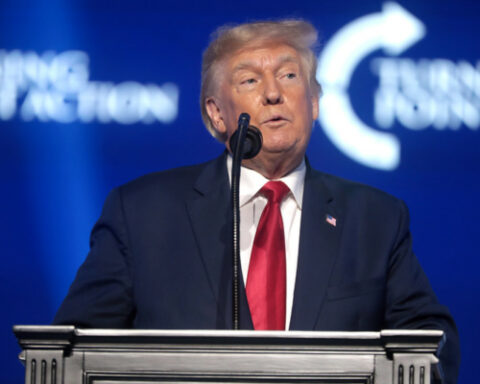In Mexico, the political discourse is now reportedly dominated by the previously unimaginable possibility of U.S. military intervention on Mexican soil, as the nation prepares for President-elect Donald Trump’s second term.
This year, Trump and his allies have proposed the use of American military force against Mexico’s drug traffickers.
Mexican officials have endeavored to determine whether Trump is sincere or merely blustering in order to gain leverage in negotiations regarding the closure of the pipeline of migrants and drugs traveling to the United States.
Claudia Sheinbaum, the newly elected president of Mexico, has promptly responded to criticism from Trump’s supporters and assuaged domestic concerns regarding potential threats from the northern neighbor.
In spite of her assurances, certain Trump allies have consistently advocated for military action against the cartels, such as his selections for national security adviser and defense secretary: Rep. Mike Waltz (R., Fla.) and former Fox News presenter Pete Hegseth, respectively.
According to U.S. government data, fentanyl is responsible for the highest number of overdose deaths of any substance in the United States, with approximately 76,000 fatalities in 2023. Trump focused his campaign on halting the flow of fentanyl to the USA.
According to Esper’s 2022 memoir, Trump contemplated conducting missile strikes against drug labs in Mexico during his initial tenure. However, he was convinced to refrain from doing so by former Defense Secretary Mark Esper.
When questioned about the assertion by the CBS television program “60 Minutes,” Trump declined to provide a response.
During his campaign, Trump declared that he would designate cartels and their leaders as foreign terrorists, impose a naval embargo to prevent drugs from crossing the border, and initiate military action against cartels.
In a separate development, the Republican president-elect has issued a threat to impose 25% tariffs on goods from Mexico if the country fails to halt the flow of migrants and fentanyl. Use of the military at the frontier is a component of the Republican Party’s platform.
In response, Sheinbaum has initiated an immediate effort to demonstrate that her administration is not lenient toward migrants and narcotics.
A record-breaking seizure of 1.3 tons of fentanyl was achieved by her government in its pursuit of fentanyl smugglers in Mexico’s powerful Sinaloa cartel.
She has dispatched her security minister to Sinaloa to supervise the endeavors to regain control of a state in which the political apparatus is dominated by organized crime and two factions are embroiled in a turf war.
According to Mexican officials, negotiations are underway to establish a unit of elite security officers who would undergo vetting and training by U.S. law enforcement officials in preparation for operations against criminals in Mexico.
With the nomination of Ron Johnson as the United States ambassador to Mexico, Trump indicated that security would be the primary concern in the bilateral relationship. Johnson, a former Green Beret and U.S. intelligence officer, has extensive experience in Latin America.
Johnson was a U.S. ambassador to El Salvador during Trump’s first term and served as an adviser to the army of El Salvador during the country’s civil conflict in the 1980s.
Currently, there is widespread anticipation that he will be instrumental in the development of Mexico’s security strategy in response to the organized criminal groups that control smuggling and migrant routes to the United States.
When he was the director of Mexico City’s police, Omar García Harfuch, Sheinbaum’s security minister, collaborated closely with U.S. security agencies.
[READ MORE: Dinesh D’Souza Speaks Out on New Controversy Over Indian Migrants]







